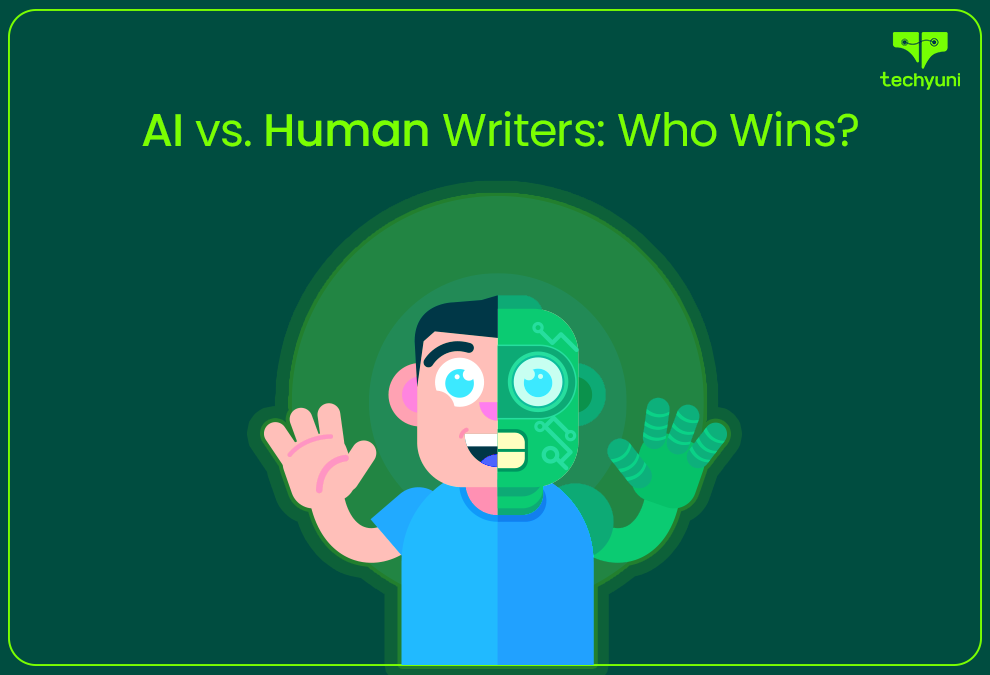
AI-Powered Copywriting: Can AI Write Better Than Humans?
Discover the advantages and limitations of AI-powered copywriting. Can AI write better than humans? Learn how AI enhances content creation, SEO, and efficiency in digital marketing.
Introduction
Artificial intelligence (AI) is revolutionizing various industries, and content creation is no exception. AI-powered copywriting tools are becoming increasingly popular for businesses, marketers, and content creators, helping them generate high-quality text at an unprecedented speed. But this raises a critical question: Can AI write better than humans?
While AI excels at efficiency, data analysis, and scalability, human writers bring creativity, emotion, and deeper contextual understanding. In this article, we’ll explore the strengths and limitations of AI-powered copywriting, analyze its impact on content marketing, and determine whether AI can truly outperform human writers.
What is AI-powered copywriting?
AI-powered copywriting refers to the use of artificial intelligence tools to generate written content. These tools leverage machine learning, natural language processing (NLP), and vast amounts of data to create everything from blog posts and product descriptions to social media captions and email campaigns.
Some popular AI copywriting tools include:
-
ChatGPT – AI-driven text generation and conversational writing
-
Jasper AI – Long-form content creation for blogs and marketing materials
-
Copy.ai – AI-powered copy for ads, social media, and sales pages
-
Writesonic – AI-driven writing for SEO-optimized articles
-
Rytr – Budget-friendly AI writing assistant for various content needs
These tools can assist writers, businesses, and marketers by automating repetitive writing tasks and optimizing content for search engines.
Advantages of AI-Powered Copywriting
1. Speed and Efficiency
One of AI’s biggest advantages is speed. AI can generate thousands of words in seconds, significantly reducing the time required for content production. Businesses can create bulk content without hiring multiple writers, making AI a cost-effective solution for marketing campaigns.
2. SEO Optimization and Data-Driven Content
AI analyzes vast amounts of online data to create SEO-optimized content. It can suggest keywords, improve readability, and generate structured articles that rank higher on search engines. Tools like Yoast SEO and Surfer SEO integrate AI to enhance keyword optimization and improve on-page SEO.
3. Consistency and Scalability
Unlike human writers, AI doesn’t suffer from fatigue, distractions, or inconsistency in tone. It can generate uniform content across multiple platforms, ensuring that branding and messaging remain consistent. This is particularly useful for businesses that need large-scale content production.
4. Grammar and Readability Enhancement
AI-powered tools such as Grammarly and Hemingway Editor improve grammar, sentence structure, and readability. They help eliminate errors and refine the clarity of written content, making AI-generated text more polished.
5. Cost Savings
Hiring a team of professional writers can be expensive, especially for startups and small businesses. AI-powered copywriting tools offer an affordable alternative, producing high-quality content at a fraction of the cost of hiring human writers.
Limitations of AI-Powered Copywriting
1. Lack of Creativity and Emotional Depth
While AI excels at structured and data-driven writing, it often lacks creativity, originality, and emotional intelligence. Human writers can craft compelling stories, persuasive sales copy, and engaging narratives that resonate emotionally with readers—something AI struggles to achieve.
2. Contextual Understanding Challenges
AI can misinterpret nuanced language, humor, sarcasm, or cultural references, leading to content that sounds unnatural or off-brand. It doesn’t always grasp the emotional or psychological factors that drive human decision-making.
3. Dependence on Human Input
AI tools rely heavily on user instructions and prompts to generate high-quality content. Without clear direction, AI can produce generic or irrelevant text that lacks depth. Human writers are still needed to refine AI-generated content and add personal insights.
4. Potential for Plagiarism and Generic Content
AI models learn from existing online data, meaning they might produce content similar to pre-existing materials. This raises concerns about plagiarism and originality, requiring human oversight to ensure uniqueness and compliance with copyright laws.
5. Limited Industry Expertise
AI lacks real-world experience and industry expertise. While it can summarize information found online, it cannot provide first-hand insights, expert opinions, or deep industry knowledge the way a subject-matter expert can.
Can AI Replace Human Copywriters?
While AI-powered copywriting is impressive, it cannot completely replace human writers—at least not yet. Instead, AI should be seen as a complementary tool that enhances productivity rather than a full replacement for human creativity.
The best approach is a hybrid model, where AI handles repetitive tasks like:
Generating blog outlines and topic ideas
Creating drafts for SEO-optimized content
Automating social media posts and email marketing
Enhancing grammar and readability
Meanwhile, human writers bring the necessary creativity, critical thinking, storytelling, and brand voice to ensure the content is engaging and meaningful.
How AI and Human Writers Can Work Together
-
AI as an Assistant, Not a Replacement
-
AI helps generate ideas and drafts, but human writers refine and personalize the content.
-
SEO Optimization with Human Creativity
-
AI suggests keywords and structures, but humans add the storytelling element that keeps readers engaged.
-
Fact-Checking and Quality Control
-
AI can generate quick content, but humans must verify accuracy and avoid misinformation.
-
Brand Voice and Emotional Connection
-
AI can replicate writing styles, but humans ensure brand authenticity and emotional appeal.
The Future of AI in Copywriting
AI-powered copywriting will continue to evolve, with advancements in machine learning and NLP making AI-generated content even more sophisticated. However, human creativity, critical thinking, and emotional intelligence will always be irreplaceable.
Businesses should embrace AI as a productivity tool, not a replacement for professional writers. By leveraging AI for efficiency and human expertise for creativity, brands can produce high-quality, engaging, and SEO-optimized content.
Related: How AI in Marketing is Transforming Business Strategies
Conclusion
AI-powered copywriting is transforming content creation, offering businesses faster, SEO-optimized, and scalable writing solutions. However, it cannot replace the creativity, storytelling, and emotional intelligence of human writers.